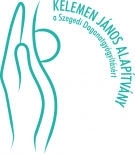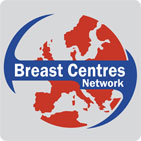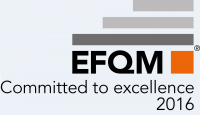AOK-KA381-1 Clinical Oncology Lecture for 4th year medical students
Lecturers: Prof. Dr. Zsuzsanna Kahán, Dr. Katalin Hideghéty, Dr. Anikó Maráz, Dr. Péter Ágoston Dr. Zoltán Varga
Compulsory lecture, 28 h/semester, 2 credit points, examination
Description: Aim of the course is to open the students` minds for the complexity of oncology and oncological treatment and to give them an idea of how the oncologist thinks and solves problems. Furthermore they shall learn to think and work “interdisciplinarily”.
Method: Detailed explanation of the topic with slide show and ocasionaly case presentation.
Requirements: Attending the course is compulsory. Preparation for the exam is required from the material presented at the lectures (handout will be available), and from the Department’s Notes. Those who did not miss more that two lectures during the semester will be offered a written exam (MCQ test and essay questions). Fort he others and for those who fail ont he written test the course will be completed with oral exam.
Topics:
1. Carcinogenesis, cancer etiology, epidemiology; Tumor prevention; The importance of pathology and diagnostic imaging in oncology; Cancer staging; Therapy response.
2. Chemotherapy; Endocrine therapy; Molecular targeted therapy and immune therapy.
3. Basic terms, the forms and physical effects of ionozing radiation; Radiotherapy equipments. Chemical and biological effects of ionizing radiation;the aims, effects and side effects of radiotherapy; Irradiation techniques, fractionation and schedule. Teletherapy/brachytherapy.
4. The practice of radiotherapy: radiation treatment planning and QA issues. The practice of radiotherapy: the role of the radiation oncologist in the process of radiotherapy; Emergency radiotherapy. Clinical drug development
5. Supportive and palliative therapy; Hospice. Breast cancer
6. ynecological malignancies. Liver and pancreatic cancers
7. Lung cancer. Head and neck cancers; Oesophagus and gastric cancer
8. Colorectal and anal cancers. Multidisciplinary team-work, The holistic approach, psycho-oncology
9. Sof tissue tumors and skin cancers; Brain and childhood malignancies
10. Medical therapies in genitourinary cancers. The radiotherapy of genitourinary cancers
Exam questions
1. Cancer screening and prevention
2. Cancer epidemics
3. Conception and role of TNM classification
4. Significance of pathologic and diagnostic imaging in oncology
5. Effect of ionizing irradiation to cells
6. Radiotherapy devices
7. Teletherapy & brachytherapy
8. Goal, aspects and processes of 3D treatment planning
9. Side effects of the oncology treatments
10. Chemotherapy
11. Endocrine therapies
12. Molecular targeted therapy
13. Principles of the immune therapy
14. Practical use of the immune therapy
15. Oncological emergencies
16. Supportive therapy in oncology
17. Principles of pain management
18. Palliative therapy
19. Clinical studies, methods, importance
20. The most common signs and symptoms in patients suffered in malignant diseases
21. Head&neck cancers and treatment
22. Characteristics and special treatment aspects of childhood malignancies
23. Complex management of skin cancers
24. Soft tissue sarcomas and treatment
25. Bone sarcomas and treatment
26. Lung cancers and treatment
27. Oesophageal cancers and treatment
28. Gastric cancer and treatment
29. Pancreatic cancer and treatment
30. Hepatocellular cancer and treatment
31. Gallbladder & intra/extrahepatic cholangiocarcinomas and treatment
32. Colon cancers and treatment
33. Rectal cancers and treatment
34. Anal cancers and treatment
35. Aetiology and symptoms of breast cancer
36. Breast cancer diagnosis, diagnostic imaging
37. Breast cancer treatment
38. Prostate cancer and treatment
39. Testicular cancer and treatment
40. Kidney cancer and treatment
41. Bladder cancer and treatment
42. Ovarian cancer and treatment
43. Cervical & endometrial cancer and treatment
44. Goal, principle and practice of oncoteam









